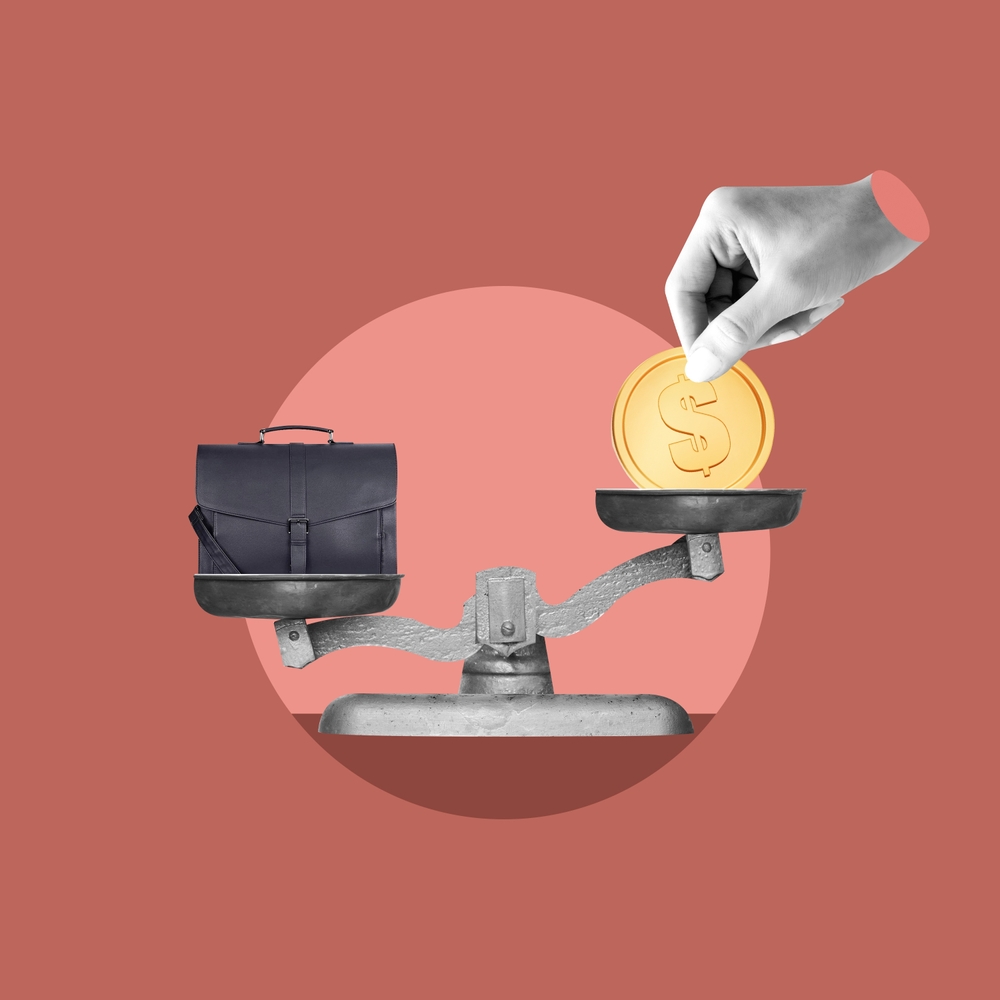In a world where financial dynamics in relationships have evolved, many women now earn more than their partners. While this shift can be empowering, it can lead to underlying tensions and unspoken resentments. Navigating these complexities requires open communication and mutual understanding. Let’s explore some common issues women face when they outearn their partners and how to address them.
1. They Resent the Unspoken Power Imbalance

When a woman earns more, the traditional power dynamics often get a shake-up. Although this can be liberating, it might also cause discomfort for both partners. Unaddressed, this shift might lead to silent power struggles. To keep things balanced, both partners need to communicate openly about their roles and contributions, ensuring each person feels valued beyond the paycheck.
2. They Feel Guilty for Their Success

Earning more can sometimes evoke feelings of guilt, as if financial success came at the expense of the partner’s ambitions. This guilt can create an emotional wedge. It’s crucial to recognize that guilt is unproductive. Instead, celebrate each other’s achievements and find ways to support each other’s growth, knowing that success doesn’t have to be a zero-sum game.
3. They Hate Having to Compromise to Maintain the Peace

Some women might compromise more or avoid specific topics to keep peace in the relationship. This, however, can lead to suppressed frustration. Both partners need to engage in honest discussions about expectations and concerns. Addressing the elephant in the room can prevent small issues from snowballing into more significant problems later.
4. They Feel the Weight of Societal Expectations

Society often clings to outdated norms, where men are expected to be the primary breadwinners. Women who out-earn their partners might face judgment from others, adding pressure on the relationship. To combat this, creating a supportive network that respects and understands your unique dynamic is important, allowing you to focus on what truly matters—each other.
5. They Resent the Unequal Contribution

Money isn’t the only measure of contribution in a relationship. When earnings are unequal, it’s easy to overlook non-financial contributions. Recognizing the value of emotional support, household management, and other non-monetary efforts strengthens the partnership. Both partners should express appreciation for these contributions, creating a more balanced and harmonious relationship.
6. They Fear Their Partner Will Become Resentful

Worries about potential resentment can linger when one partner earns significantly more. This fear can fester if left unaddressed. It’s vital to keep the lines of communication open and check in with each other regularly. This helps to ensure that resentment is discussed and resolved before it affects the relationship’s health.
7. They Feel Burdened by Financial Decisions

Handling finances can become a contentious issue when paychecks are uneven. Decisions about spending, saving, and investing shouldn’t fall solely on the higher earner. Both partners should have a say in financial planning, fostering a sense of shared responsibility and partnership rather than control and dependency.
8. They Feel the Pressure to Fund the Family Lifestyle

A higher income can sometimes lead to the expectation of funding a more lavish lifestyle. This pressure can be overwhelming and unfair. Setting boundaries and having candid conversations about lifestyle choices and financial goals is essential. Aligning these can prevent misunderstandings and ensure both partners are comfortable with financial decisions.
9. They Feel the Anxiety of Their Partners’ Dependency

For some women, earning more can lead to fears about their partner becoming financially dependent. This anxiety can strain the relationship. Address these concerns head-on by encouraging mutual financial independence and supporting each other’s career ambitions, ensuring both partners feel secure and autonomous.
10. They Resent Having to Sacrifice Their Family for a Career

Women who out-earn their partners might worry about prioritizing their careers over family or personal time. Balancing success and personal life can be tricky. Still, shared goals and mutual understanding can help both partners need to communicate openly about their priorities and the compromises they’re willing to make together.
11. They Wrestle with Feelings of Isolation

Feeling isolated in their success is a common sentiment for women in this situation. They might sense a lack of camaraderie or understanding from peers. Building a network of like-minded individuals through friends or professional groups can provide much-needed support and reassurance that their experiences are valid and shared.
12. They Worry it Makes Intimacy Strained

Financial disparities can subtly affect emotional and physical intimacy. It’s easy to let financial stress seep into personal aspects of the relationship. Keeping intimate connections strong requires active effort—regular date nights, heartfelt conversations, and shared experiences that remind both partners of what brought them together beyond finances.
13. They Resent Having to Navigate Criticism and Judgment

Facing criticism from family, friends, or society can be challenging. These external opinions can influence internal dynamics if not kept in check. Standing united as a couple and focusing on what works for your relationship, rather than external validation, helps to create a resilient partnership.
14. They Fear Their Roles are Muddied

Traditional gender roles can muddy perceptions of masculinity and femininity when financial roles are reversed. These stereotypes can lead to insecurities. Both partners should strive to redefine these roles in a way that honors their identities and respects each other’s strengths, fostering an environment where they can thrive together.
15. They Resent the Struggles with Self-Worth on Both Sides

Partners earning less might grapple with feelings of inadequacy or reduced self-worth. Encouraging and nurturing each other’s confidence is crucial. Recognizing and appreciating each partner’s unique contribution to emotional support, career achievements, or personal growth helps cultivate an environment where both feel valued and loved.




